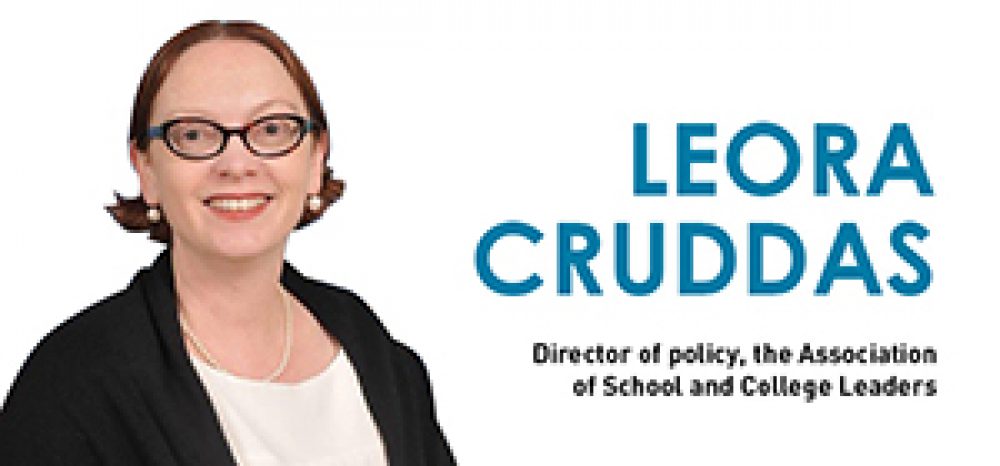There are not enough teachers to teach the mandatory Ebacc modern foreign language. In the spirit of détente, Leora Cruddas puts forward three steps that could bridge the gap
Bonjour. Guten Tag. Buenos dias. Welcome to the future of foreign language teaching. It is a future that will be shaped by the government’s aim that 90 per cent of pupils should be taking GCSEs in the subjects that make up the English baccalaureate (Ebacc) by 2020. As these subjects include a language, this will mean a huge increase in the numbers sitting French, German and Spanish.
There is, of course, tremendous educational value in learning a second language. The biggest problem we have with the government’s goal, however, is a practical one. There are simply not enough teachers. To understand the scale of this challenge it is worth considering where we are at present. In 2015, the proportion of pupils entering the Ebacc (including a language) was 39 per cent. This will more than double.
Three elements of the Ebacc – maths, science and English – are already core subjects. But making it compulsory means increasing the uptake of one of the humanities options (history or geography), and a language. Both are challenging, but languages particularly so. Many schools already report difficulties in recruiting language teachers, and the initial teacher training census shows a shortfall in language trainees for the past three years. Furthermore, fewer students are taking A-levels in languages than in the other Ebacc subjects, which indicates a smaller pool of potential teachers in the future.
The immediate pressure, however, is not in the future, it is now. To achieve the Ebacc target, schools will need to have 90 per cent of their pupils beginning these GCSE courses in September 2018, just two and a half years away.
I (and ASCL) therefore have three proposals to improve things:
1. As we are (currently) in the European Union, let’s examine how to recruit teachers from continental Europe who are native speakers in French, German and Spanish. We would need to ensure they have good English language skills and provide them with training to teach these subjects in English classrooms. The first step would be for the Department for Education (DfE) to commission research to determine what would be required to make this work.
2. Schools may have staff with language qualifications currently teaching other subjects. With the right training and support, and timetable adjustments, they may be willing to take on some language teaching. Our proposal is for the DfE to commission subject enhancement courses through the network of teaching school alliances in the summer holidays over the next three years, with extra payments for teachers who undertake these courses.
3. Finally, what could be done to recruit foreign language teachers in other nations where English is commonly spoken, such as Canada, Australia and South Africa? This too could be part of the research proposed in my first point.
The government’s objection to these proposals may well be the expense. However, it will be difficult, if not impossible, to achieve the Ebacc goal without urgent action. That is also true of the teacher supply situation in general. All pupils may already study the core subjects – maths, science and English – but severe teacher recruitment difficulties threaten to undermine standards. The most recent initial teacher training census shows shortfalls not only in languages (87 per cent recruited against target), but also in maths (93 per cent), science (85 per cent) and geography (83 per cent).
Much has been said about the time it has taken for the government to recognise the extent of these problems. We must now move on to work constructively with ministers on practical solutions.







I can see that you are trying to come up with solutions to a big problem generated by the Government. My reaction to each suggestion would be:
1. Such teachers will not be trained in teaching their native language as a foreign language. We need mfl teachers who understand the common issues and difficulties our students have in learning French, German and Spanish as native speakers of English.
2. OK, it might work. We still want our teachers educated to degree level in their subject specialisms, don’t we? I’m sure there are elements of my degree that I use even when teaching Year 7.
3. This could bring us some decent teachers. Far better that our big problem should become a series of shared problems for other anglophone nations, are you saying? At least we would be alright. As long as we are honest about the somewhat unique pressures of working in the English system before they come over, otherwise they may not be expecting them and thus not be encouraged to stay for long.
I recognise the need for stopgap measures, but long-term we want a highly-qualified mfl workforce who are expert in developing proficiency, fluency and love of language and culture in our learners.
Why don’t you make teaching more attractive by removing all the nonsense that makes people leaving the profession and stops people wanting to join it, then target students in universities studying languages and humanities (why not core subjects too)? Our kids are far more likely to gain inspiration or belief to learn languages from UK grads than people with whom they can relate less.